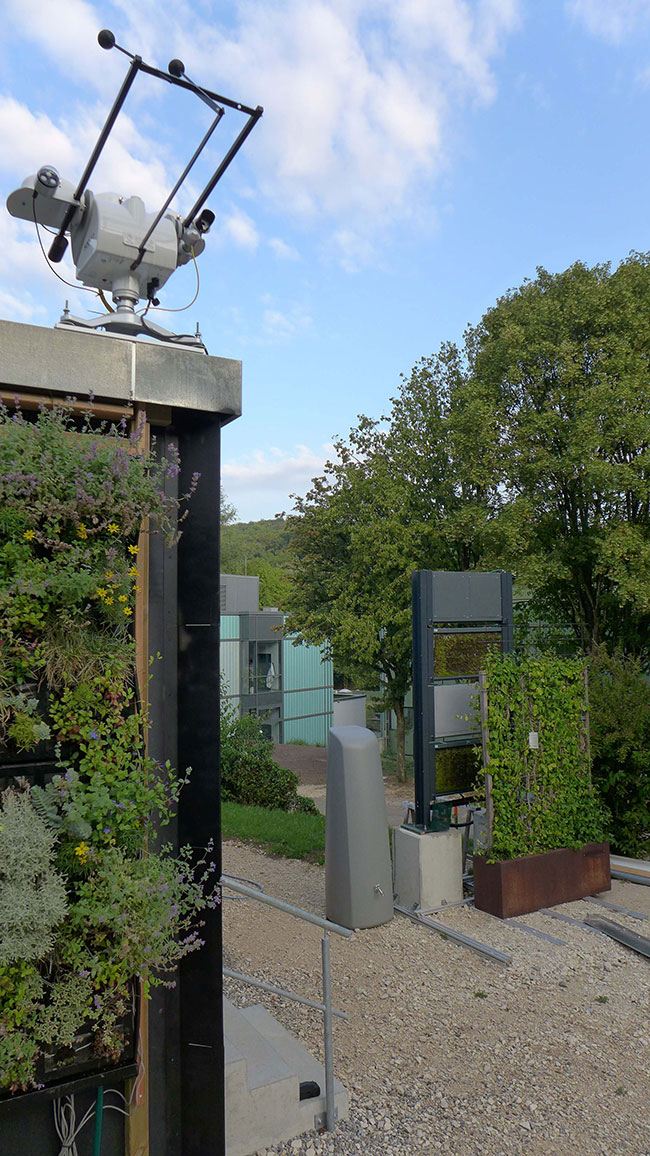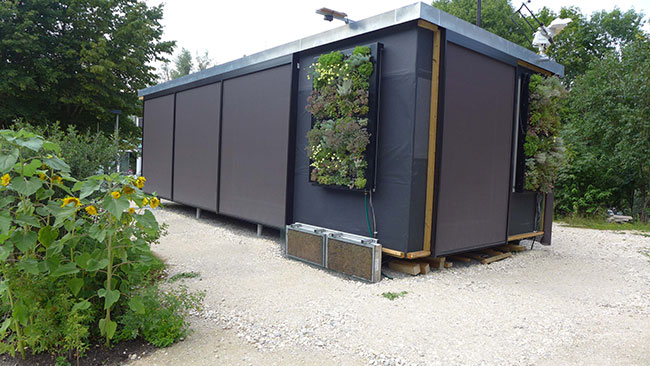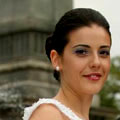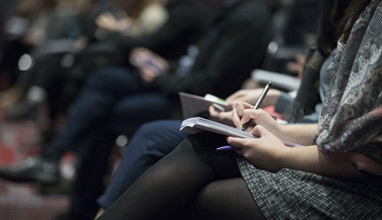The ForschungsKUBUS in Denkendorf
The ForschungsKUBUS is a self-contained research center with a floor area of approximately 40 square-meters that is available to industry and research institutes. The key focus areas are intelligent light management and vertical greening. Textile surfaces are also tested here for their suitability to be used as building façade textiles and other new architecture-related applications.

The four walls of the building are precisely aligned in a north-south direction. Varying artificial and daylight conditions can be simulated and measured on six large windows, oriented in all four cardinal directions. Highly accurate photometric parameters related to the position of the sun, like solar irradiance and illuminance as well as weather data, are automatically measured throughout the year. Data describing the actual illumination and irradiation conditions is not yet publicly available for use in daylight management. This data is however essential for determining the construction parameters with which textile-based artificial and daylight systems can be developed. The lighting can be connected with the interior and exterior sun shades via a bus-controlled electrical installation and can either be controlled automatically based on weather data or manually by smartphone.

Any other components that are developed inside the ForschungsKUBUS can also be integrated into the building automation system. New shading textiles block direct solar radiation and, at the same time, direct enough valuable daylight into the room that artificial light can be dispensed with altogether.
The thermal radiation during the summer, which keeps the ForschungsKUBUS cool even without a ventilation system. At the same time, the view to the outside is not noticeably restricted. Integrated textile sensors measure illuminance and control textile-based actuators to adjust the level of shading depending on the position of the sun. These smart, active building textiles not only find applications in smart homes, but also form an ideal basis for so-called smart neighborhoods, where the houses of entire streets are intelligently connected.
Many urban areas can only create additional residential space by retroactive densification. This requires specialized structural designs, which are being developed in the ForschungsKUBUS. Textile fa?ade systems are lightweight, flexible, and highly functional. Textile roof structures have long since found their way into permanent buildings in the form of membrane structures. Through their flexibility and light weight, these textile materials offer versatility like practically no other material and find particular application in stadium roofs, railway stations and airports.
Vertical greening systems can improve air quality and provide a habitat for insects in densely built city centers. So-called “living walls” are being developed at the ForschungsKUBUS, which allow plants to be grown in vertical spaces. They not only improve quality of life, but can also be used in urban water management owing to their water retention capacity. Besides the development of living walls, ForschungsKUBUS is also researching moss walls, that can be used, for example, to reduce particulate matter. Lightweight textile construction solutions are also being developed in Denkendorf, so that these systems can also be used for and installed on existing buildings. Integrated textile sensors record values that are important to plant growth, thus establishing a basis for implementation in the building automation system. The aim is to develop autonomous vertical vegetation systems that require significantly less maintenance thanks to a demand-driven, integrated irrigation system.
The ForschungsKUBUS demonstrates opportunities to digitally network trade and industry within the framework provided by the Mittelstand 4.0Kompetenzzentrum “Textil vernetzt.” For example, an individually tailored light management system could be manufactured and installed for each building.
ForschungsKUBUS is part of the German Institutes for Textile and Fiber Research (DITF)
Hits: 10369 | Leave a comment
Tags:Denkendorf, Kubus, industry, research


















